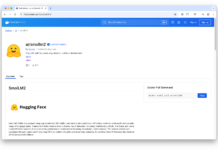In this article, we will be discussing Premium DNS and why and when you need it? So without any delay, let’s begin.
1. What is Premium DNS?
Premium DNS is our new globally available DNS service which provides you with a 100% service level agreement for DNS resolution. Premium DNS can be used with any domain registered at any registrar. This is one of the most cost-effective high-performance DNS services around for the money.
Also Read: Best Domain Services At Just $5.98/year
A domain name system(DNS) is a directory for all resources connected to the internet. Its primary purpose is to match domains to their IP addresses. Like a phonebook lists phone numbers with peoples’ names.
2. Free vs Premium DNS
2.1 Free DNS and its features:
- These typically provide DNS hosting services along with free domain registration.
- Rate Limit and blocking: It refers to limiting the number of requests or API calls to control the negative impact a system might suffer, such as from malicious bot activity.
- Dynamic DNS: unlike a standard DNS that only works with static IP addresses. DDNS automatically updates DNS records whenever an IP address changes.
- Firewall Policy: These are the security rules to determine the types of incoming and outgoing website traffic.
2.2 Premium DNS and its features:
- A premium domain nameserver web hosting service usually includes several benefits such as strong security, fast performance, and customized DNS configuration.
- Advanced Reporting: It includes a detailed reporting system and analytics.
- DNS templates: Used to create pre-defined DNS zone formats. It makes easy DNS updates from the Dashboard.
- Two-way Authentication: Secures a site using two-factor login authentication for extra protection.
Also Read: How to set the Universal DNS Server address manually?
3. Benefits of Premium DNS
Now, we will explain the benefits of purchasing a premium DNS.
3.1 Larger Resources:
Premium DNS providers have a larger pool of resources. Compared to a free or a regular DNS, a paid DNS usually comes with more domains, DNS zones, DNS records, and the number of DNS queries per month. With a large number of resources, websites with a paid DNS can handle high levels of traffic without any problems.
In addition, a premium DNS provider typically gives customers more administrative control and configuration options when it comes to DNS management.
3.2 Stronger Security:
When it comes to types of cyberattacks, the most frequent of them are called DDoS (Distributed Denial of Service) attacks. This occurs when multiple computer systems are instructed to attack a specific target, flooding the target’s network with malicious traffic. This can make a website inaccessible.
Sometimes, users may even be directed to a malicious IP address and encouraged to give out sensitive information.
A premium DNS provider will protect a site using various DDoS protection elements. Such as active monitoring, an alarm system, automatic triggers, traffic filtering, and DNS traffic load balancing.
3.3 Faster Performance:
Premium DNS providers offer faster web performance, worldwide coverage, and up to 99.99% uptime. Premium DNS providers usually have large infrastructures with many DNS servers located worldwide. This means all website visitors can experience fast DNS lookups and web performance regardless of their geographical locations.
4. Why do you need a Premium DNS Provider?
Online attacks are a serious risk for organizations in all fields. Protecting your connections from hacking attempts is essential. It’s also important to ensure that your website stays online in the event of an attack. And to make sure that you maintain fast load times and offer guaranteed website uptime. With that in mind, it’s easy to see why so many decision-makers are searching for premium domain name servers (DNS). But before you examine DNS options, it’s important to fully understand the risks you are facing.
4.1 Identifying DNS threats:
The rate of DNS-based attacks is both increasing and becoming more difficult to prevent as new mechanisms of compromise are created by hackers.
This is sadly just the tip of the iceberg and a big reason why IT managers need to have a well-managed DNS. This is key to keeping your business web, email, and other online applications and infrastructure up and running and running well. Part of the problem is that DNS has held a trusted place in the minds of many IT professionals, even though this is not really borne out in practice.
Let’s look at some of the common DNS-based attack methods:
- Distributed Denial of Service (DDoS) attacks: where hackers aim network traffic to clog up web servers and bring them down. There are several different types of DDoS attacks, including traffic amplification, subdomain attacks, and DNS floods. All of them are clever ways to fill up your servers with junk traffic and tie their processing up to prevent legitimate users from obtaining content.
- Domain Hijacking or DNS reflection: when attackers can re-route queries from your particular servers to destinations that they control, often to then insert malware into your endpoints.
- Cache poisoning or DNS spoofing: where malware is injected into your DNS caches so they can redirect your DNS query traffic.
- NXDomain attacks or DNS recursion attacks are another form of DDoS attack that floods your DNS infrastructure and can cause downtime.
4.2 Ways to secure DNS
There have been a variety of methods proposed to try to do a better job of securing this protocol.
- DNS Security Extensions (DNSSEC): It was first proposed in 2010, added cryptographic signatures to help verify that DNS responses were coming from the intended servers. While the authentication was useful, it didn’t protect the privacy of the DNS conversation.
- DNS over HTTPS (DoH) and DNS over TLS: It sends these requests over the UDP transport layer, again using encryption. This prevents man-in-the-middle tampering that could be done with unprotected DNS conversations. The TLS version skips the application-layer protocols, which helps hide this traffic even further and offers a slight performance boost as a result.
- DNSCrypt: It was designed to prevent DNS spoofing attacks and has several open-source implementations.
4.3 Ways to prevent common DNS attack methods:
The world of specialized DNS-based attacks continues to grow, and better ways to prevent these attacks. Such as identifying common attack signatures can eliminate downtime and improve overall network security. This includes better attack monitoring. Because these providers can watch over a higher traffic volume, they tend to see exploits sooner and can stop them faster.
4.4 Better network response times:
The distance between the location of your website and the location of your online visitors can cause slow page load times, dropped queries (404 or “page not available” errors), and increased latency. Having an alternative DNS provider can optimize these response times to maximize performance and availability.
4.5 Better network routing and filtering:
Having your DNS automatically detect and route your network traffic to the “nearest” server not only improves response times. And can also help to balance demands on DNS query loads and act as a built-in failover mechanism in case of issues with any of your DNS servers. Some DNS providers, also provide DNS filters to help manipulate DNS queries to limit access by geopolitical regions or prioritize traffic.
Also Read: How To Flush DNS Cache In Windows 11
Conclusion
In this article, we discussed Premium DNS. And there are various benefits of premium DNS, like larger resources, improved security, etc. And many more things. We hope this article has helped you learn more about a premium DNS. If you have any queries, then please let us know in the comments section.




































